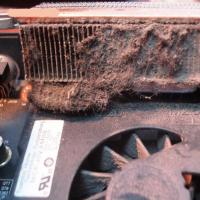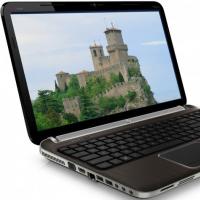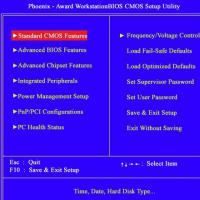Fresh leakage confirmed the design and characteristics of the Samsung Galaxy S8 Active. Samsung presented Galaxy S8 Active - flagship smartphone in a protected body Samsung Galaxy S8 Active Mobile Phone
Information about the brand, model and alternative names of a particular device, if any.
Design
Information on sizes and weight of the device presented in different units of measurement. Used materials offered colors, certificates.
| Width Information about width - meant the horizontal side of the device when it is standard orientation during use. | 74.9 mm (millimeters) 7.49 cm (centimeters) 0.25 ft (ft) 2.95 in (inches) |
| Height Information about height - meant the vertical side of the device when it is standard orientation during use. | 152.14 mm (millimeters) 15.21 cm (centimeters) 0.5 ft (ft) 5.99 in (inches) |
| Thickness Information about the thickness of the device in different units of measurement. | 9.9 mm (millimeters) 0.99 cm (centimeters) 0.03 ft (ft) 0.39 in (inches) |
| Weight Information about the weight of the device in different units of measurement. | 207 g (grams) 0.46 LBS (pounds) 7.3 OZ (oz) |
| Volume The approximate volume of the device calculated on the basis of the size provided by the manufacturer. Refers to devices with a form of rectangular parallelepiped. | 112.81 cm³ (Cubic centimeters) 6.85 In³. (cubic inches) |
| Colors Information about the colors in which this device is available on sale. | Golden Grey |
| Case Production Materials Materials used for making the device body. | Polycarbonate Metal |
| Certification Information on the standards for which this device is certified. | IP68. MIL-STD-810G |
SIM-card
The SIM card is used in mobile devices to save data certifying the authenticity of mobile services subscribers.
Mobile networks
Mobile network is a radio system that allows multiple mobile devices to exchange data among themselves.
| GSM. GSM (Global System for Mobile Communications) is designed to replace an analog mobile network (1G). For this reason, GSM is very often called 2G mobile network. It is improved by adding GPRS (General Packet Radio Services), and later and EDGE (Enhanced Data Rates for GSM Evolution). | GSM 850 MHz. GSM 900 MHZ. GSM 1800 MHz. GSM 1900 MHz. |
| Umts. UMTS is a reduction in Universal Mobile Telecommunications System. It is based on GSM standard and refers to 3G mobile networks. A 3GPP has been developed and its greatest advantage is the provision of greater speed and spectral efficiency due to W-CDMA technology. | UMTS 850 MHz. UMTS 900 MHZ. UMTS 1700/2100 MHz. UMTS 1900 MHz. UMTS 2100 MHZ. |
| LTE LTE (Long Term Evolution) is defined as the fourth-generation technology (4G). It has been developed by 3GPP based on GSM / EDGE and UMTS / HSPA in order to increase the capacity and speed of wireless mobile networks. The subsequent development of technologies is called LTE Advanced. | LTE 700 MHz Class 13 LTE 700 MHz Class 17 LTE 800 MHZ. LTE 850 MHZ. LTE 900 MHZ. LTE 1700/2100 MHZ. LTE 1800 MHZ. LTE 1900 MHz. LTE 2100 MHZ. LTE 2600 MHz. LTE-TDD 1900 MHz (B39) LTE-TDD 2300 MHz (B40) LTE-TDD 2500 MHz (B41) LTE-TDD 2600 MHz (B38) LTE 700 MHz (B12) |
Mobile communication technology and data transfer rate
Communication between devices in mobile networks is carried out through technologies that provide different data transfer rates.
Operating system
The operating system is system software, controlling and coordinating the hardware components in the device.
SOC (crystal system)
The system on the crystal (SOC) includes all the most important hardware components of the mobile device in one chip.
| SOC (crystal system) The system on the crystal (SOC) integrates various hardware components, such as a processor, a graphics processor, memory, periphery, interfaces, etc., as well as the Softera needed for their operation. | Qualcomm Snapdragon 835 MSM8998 |
| Technological process Information on the technological process to which the chip is made. The nanometers in the nanometers measured half the distance between the elements in the processor. | 10 nm (nanometers) |
| Processor (CPU) The main function of the processor (CPU) of the mobile device is the interpretation and execution of instructions contained in software applications. | 4x 2.35 GHz Kryo 280, 4x 1.9 GHz Kryo 280 |
| Processor discharge The processor bit (bits) of the processor is determined by the size (in bits) of registers, targeted tires and tires for data. 64-bit processors have a higher performance compared to 32-bit, which are more productive for their part than 16-bit processors. | 64 bits |
| Architecture of a set of commands Instructions are the commands with which the software is set / manages the operation of the processor. Information about the command set (ISA) that the processor can perform. | Armv8-A. |
| First Level Cache Memory (L1) Cache memory is used by a processor to reduce access to more frequently used data and instructions. L1 (Level 1) Cache memory is characterized by a small volume and works much faster both the system memory and other levels of cache memory. If the processor does not detect the requested data in L1, it continues to look for them in L2 cache. With some processors, this search is performed simultaneously in L1 and L2. | 32 KB + 32 KB (kilobytes) |
| Second Level Cache Memory (L2) L2 (Level 2) Cache memory is slower than L1, but in return, it is distinguished by a large range that allows caching more data. It, as well as L1, is much faster than system memory (RAM). If the processor does not detect the requested data in L2, it continues to search them in L3 cache (if available) or in RAM memory. | 3072 KB (kilobytes) 3 MB (megabytes) |
| Kingdom of processor cores The core of the processor performs software instructions. There are processors with one, two or more nuclei. The presence of a larger number of nuclei increases performance, allowing parallel execution of a plurality of instructions. | 8 |
| Processor clock frequency The processor clock frequency describes its speed by means of cycles per second. It is measured in megahertz (MHz) or Gighellians (GHZ). | 2350 MHz (Meghertz) |
| Graphic Processor (GPU) The graphics processor (GPU) processes the calculations for various 2D / 3D graphic applications. In mobile devices, it is used most often by games, consumer interface, video applications, etc. | Qualcomm Adreno 540. |
| Clock frequency graphics processor The speed of work is the clock frequency of the graphics processor, which is measured in Meghertz (MHz) or Gighellians (GHz). | 710 MHz (Meghertz) |
| RAM (RAM) RAM (RAM) is used by the operating system and all installed applications. Data that are stored in RAM is lost after turning off or restarting the device. | 4 GB (gigabytes) |
| RAM type (RAM) Information about the type of RAM (RAM) used by the device. | LPDDR4X. |
| Number of RAM channels Information about the number of channels of RAM is integrated into SOC. More channels means higher data transfer rates. | Two-channel |
| RAM frequency RAM frequency determines its speed, more specifically, the speed of reading / writing data. | 1866 MHz (Meghertz) |
Built-in memory
Each mobile device has a built-in (non-removable) memory with a fixed volume.
Memory cards
Memory Cards are used in mobile devices to increase the amount of memory to save data.
Screen
The mobile device screen is characterized by its technology, resolution, pixel density, diagonal length, color depth, etc.
| Type / Technology One of the main characteristics of the screen is the technology on which it is manufactured and on which the quality of the information image directly depends. | Super Amoled. |
| Diagonal Mobile devices the screen size is expressed by the length of its diagonal, measured in inches. | 5.8 in (inches) 147.32 mm (millimeters) 14.73 cm (centimeters) |
| Width Approximate screen width | 2.54 IN (inches) 64.45 mm (millimeters) 6.44 cm (centimeters) |
| Height Approximate screen height | 5.22 in (inches) 132.48 mm (millimeters) 13.25 cm (centimeters) |
| Aspect ratio The ratio of the size of the length of the screen to its short side | 2.056:1 |
| Resolution Screen resolution shows the number of pixels vertically and horizontally screen. Higher resolution means a clearer image item. | 1440 x 2960 pixels |
| Pixel density Information on the number of pixels on a centimeter or an inch screen. Higher density allows you to show information on the screen with clearer items. | 568 PPI (pixels per inch) 223 ppcm. (pixels for centimeter) |
| Color depth The color color depth reflects the total number of bits used for the color components in one pixel. Information about the maximum number of colors that the screen may show. | 24 bits 16777216 Flowers |
| Screen Approximate area in percent, occupied by the screen on the front panel of the device. | 75.17% (interest) |
| Other features Information about other features and screen characteristics. | Cucitive Multitach Resistance to scratches |
| Corning Gorilla Glass 5 ALWAYS-ON DISPLAY |
Sensors
Various sensors perform various quantitative measurements and convert physical indicators to signals that the mobile device recognizes.
Rear camera
The main mobile camera camera is usually located on its rear panel and can be combined with one or more additional cameras.
| Sensor model | Sony IMX333 Exmor RS |
| Sensor type | |
| Sensor format | 1/2.55" |
| Pixel size | 1.4 μm (Mikrometters) 0.001400 mm (millimeters) |
| Svetlomila | f / 1.7 |
| Focal length | 4.25 mm (millimeters) 26 mm (millimeters) * (35 mm / Full Frame) |
| line of sight | 77 ° (degrees) |
| Type of outbreak Rear (rear) mobile cameras mainly use LED flashes. They can be in configuration with one, two or more light sources and differ in shape. | Double LED |
| Image resolution | 4032 x 3024 pixels 12.19 MP (megapixels) |
| Video resolution | 3840 x 2160 pixels 8.29 MP (megapixels) |
| 30 frames / sec (Frames per second) | |
| Characteristics Information on additional software and hardware features of the rear (rear) camera. | Autofocus Serial shooting Digital zoom Optical image stabilization Geographic labels Panoramic shooting HDR shooting Touch focus Face Recognition White balance setting Setting up ISO. Exposition compensation Self-timer Scene selection mode Autofocus with phase detection (PDAF) |
| Available Also With Samsung S5K2L2 (ISoCell) Phase Detection WITH DUAL PIXEL Object Tracking AF Smart Ois HIGH CRI LED FLASH 720p @ 240 FPS |
Front-camera
Smartphones have one or more frontal chambers of various designs - POP-UP camera, swivel camera, cutout or hole in the display, camera under the display.
| Sensor model Information about the manufacturer and model of the sensor used by the camera. | Sony IMX320 Exmor RS |
| Sensor type Information about the camera sensor type. Some of the most widely used types of sensors in mobile devices cameras are CMOS, BSI, ISoCell, etc. | CMOS (Complemenient Metal-Oxide Semiconductor) |
| Sensor format The optical sensor format is an indicator of its shape and size. Usually expressed in inches. | 1/3.6" |
| Pixel size Pixels are usually measured in microns. Large pixels are able to capture more light and, therefore, provide better surveillance with low lighting and a wider dynamic range than smaller pixels. On the other hand, smaller pixels allow you to increase the resolution while saving the same sensor size. | 1.22 μm (Mikrometters) 0.001220 mm (millimeters) |
| Svetlomila Lights (also known as a diaphragm, aperture or F-number) is an indicator of a lens aperture size that determines the amount of light falling onto the sensor. The lower the number F, the greater the diaphragm and the greater the light reaches the sensor. Typically indicates the number F corresponding to the maximum possible aperture of the diaphragm. | f / 1.7 |
| Focal length The focal length indicates the distance in millimeters from the sensor to the optical center of the lens. The equivalent focal length (35 mm) is the focal length of the mobile device chamber, equalized to the focal length of the 35mm full-length sensor, in which the same viewing angle will be reached. It is calculated by multiplying the real focal length of the camera of the mobile device to the crop factor of its sensor. Crop-factor can be defined as a ratio between diagonals 35 mm of a full-format sensor and a mobile device sensor. | 2.95 mm (millimeters) 25 mm (millimeters) * (35 mm / Full Frame) |
| line of sight The field of view shows which part of the scene in front of the camera will be removed. It depends not only on the focal length, but also on the size of the sensor. It can be calculated through the angle of optics and the sensor crop factor. The viewing angle is the angle between the two most long-range diagonal points of the frame. | 80 ° (degrees) |
| Image resolution One of the main characteristics of the cameras is the resolution. It is the number of horizontal and vertical pixels in the image. For convenience, smartphone manufacturers often indicate permission in megapixels, indicating an approximate number of pixels in millions. | 3264 x 2448 pixels 7.99 MP (megapixels) |
| Video resolution Information on the maximum allowing video allowing that can record the camera. | 2560 x 1440 pixels 3.69 MP (megapixels) |
| Video recording speed (personnel frequency) Information about the maximum recording speed (frames per second, FPS) supported by the camera at maximum resolution. Some of the most basic speed recording speeds 24 FPS, 25 FPS, 30 FPS, 60 FPS. | 30 frames / sec (Frames per second) |
| Available Also with Samsung S5K3H1 AUTO HDR |
Audio
Information on the type of loudspeakers and supported by the audio technology.
Radio
Mobile radio radio is a built-in FM receiver.
Location
Information on navigation and location devices supported by the device.
Wi-Fi
Wi-Fi is a technology that provides wireless communication for data transfer to close distances between different devices.
Bluetooth
Bluetooth is the standard of secure wireless data transfer between different devices of different types for short distances.
| Version There are several versions of Bluetooth, while each subsequent improves communication speed, coverage, contributes to more easily detecting and connecting devices. Information about the Bluetooth version of the device. | 5.1 |
| Characteristics Bluetooth uses different profiles and protocols that provide faster data exchange, energy savings, improve device detection, etc. Some of these profiles and protocols that support the device are shown here. | A2DP (Advanced Audio Distribution Profile) AVRCP (Audio / Visual Remote Control Profile) DIP (Device ID Profile) HFP (Hands-Free Profile) HID (Human Interface Profile) HSP (Headset Profile) LE (Low Energy) MAP (Message Access Profile) OPP (OBJECT PUSH PROFILE) Pan (Personal Area Networking Profile) PBAP / PAB (Phone Book Access Profile) |
USB
USB (Universal Serial Bus) is an industrial standard that allows different electronic devices to exchange data.
Plug for headphones
This is an audio connector, which is also called the audio connector. The most widely used standard in mobile devices is 3.5 mm headphone jack.
Connecting devices
Information on other important connection technologies supported by the device.
Browser
The web browser is a software application for accessing and viewing information on the Internet.
| Browser Information on some basic characteristics and standards supported by the device browser. | HTML. HTML5. CSS 3. |
Sound File Formats / Codecs
Mobile devices support different formats and codecs of sound files that are respectively preserved and encoded / decoded digital audio data.
Formats / Codecs Video Files
Mobile devices support different formats and codecs of video files that are respectively preserved and encoded / decoded digital video data.
Battery
Mobile batteries differ from each other in its capacity and technology. They provide an electrical charge needed for their operation.
| Capacity The battery capacity shows the maximum charge that it is capable of saving, measured in milliamme aperture. | 4000 mA · h (milliamper watch) |
| A type The type of battery is determined by its structure and, more specifically used by chemicals. There are different types of batteries, while most often in mobile devices are used lithium-ion and lithium-ion-polymer batteries. | Li-Ion (lithium-ion) |
| Talk time 2G. The time of the conversation in 2G is the period of time for which the battery charge is discharged completely at a continuous conversation in 2G network. | 32 h (clock) 1920 min (minutes) 1.3 days |
| 2G waiting time Waiting time in 2G is the time period for which the battery charge is discharged completely when the device is in standby mode (STAND-BY) and connected to 2G network. | 360 h (clock) 21600 min (minutes) 15 days |
| Talk time 3G. The conversation time in 3G is the time period for which the battery charge is discharged completely with a continuous conversation in the 3G network. | 32 h (clock) 1920 min (minutes) 1.3 days |
| 3G waiting time Waiting time in 3G is a period of time for which the battery charge is discharged completely when the device is in standby mode (Stand-BY) and connected to 3G network. | 360 h (clock) 21600 min (minutes) 15 days |
| Output power adapter Information on the power of the electric current (measured in amperes) and electrical voltage (measured in volts), which delivers the charger (output power). Higher output power provides faster battery charging. | 5 V (Volta) / 2 A (Amperes) 9 V (Volta) / 1.67 A (Amperes) |
| Characteristics Information on some additional characteristics of the device battery. | Wireless charger Fast charge Non-removable |
| Qi / PMA Wireless Charging |
Specific absorption coefficient (SAR)
The SAR level indicates the number of electromagnetic radiation absorbed by the human body during using the mobile device.
| SAR level for head (USA) The SAR level indicates the maximum number of electromagnetic radiation, which is exposed to the human body if you hold the mobile device next to the ear. The maximum value used in the United States is 1.6 W / kg per 1 gram of human tissue. Mobile devices in the United States are controlled by CTIA, and FCC spends tests and sets them SAR values. | 0.25 W / kg (Watt per kilogram) |
| Body SAR Level (USA) The SAR level indicates the maximum number of electromagnetic radiation, which is subject to the human body if you keep your mobile device at the thigh level. The highest permissible SAR value in the United States is 1.6 W / kg per gram of human tissue. This value is set by FCC, and CTIA controls the Mobile Device Compliance with this standard. | 0.8 W / kg (Watt per kilogram) |
Pluses Galaxy S8 Active
- Full Galaxy S8.
- High battery life
- Housing of increased strength
- Shockproof screen
- Flat screen someone like more curved
Cons Galaxy S8 Active
- Too big and heavy for many
- Nothing but the case does not differ
- More expensive model
- The screen is scratched
What did you like in Galaxy S8 Active
The main advantage of Galaxy S8 Active is that, as its basis, this is all the same beautiful smartphone S8. Each specification, each function and each component remained the same. This means that you will get high performance, a wide range of software features and one of the best cameras. The housing is protected from water and dust, while the connector did not become less. In its place there remained a traditional headphone connector 3.5 mm and without a plug. You also get a magnificent SUPER AMOLED screen with excellent brightness, which is easy to watch even in the sun.

Also remained wireless recharging, which is sometimes absent in such cases due to the thick body, which does not pass the signal. Such a set of characteristics is not available to other smartphones with increased strength.
One characteristic has changed markedly, but for the better. The battery capacity has grown to 4000 mAh instead of 3000 mAh in S8 and 3500 mAh. Naturally, the duration of autonomous work has grown. Most often by the end of the day, the charge remains at 20% -30%.
More developers want to highlight this smartphone using a shock-resistant screen. Presumably, you can drop it from a height of one and a half meters to a solid surface and the screen will remain integer.

What did not like in Samsung Galaxy S8 Active
With everyday work with a smartphone, large complaints it does not cause. The main disadvantage is the size. Smartphone is wider, longer, thicker and harder than the standard version, and much. It is 10 g heavier even compared to, in size it is between. This is a lot, especially with the fact that the size of the screen is like standard S8.Due to the large size with a smartphone, it is harder to work, it is inconvenient to keep it in hand, even if you compare with slippery S8. The appearance does not have such a beautiful, like an elegant standard version.


There is another aspect, not so noticeable. The shockproof screen became so at the expense of a special film on top of Gorilla Glass glass 5. As in the Moto Z2 Smartphone, this coating is easily scratched. Thus, scratches remain not on the glass itself, but on the plastic from above, but it's still scratch.

In the US, there is a fourth of large mobile operators and S8 Active sold only at AT & T. This means the presence of a dozen usually unnecessary preset applications, although they can be disabled or deleted. Also amended the operating system. Fortunately, the smartphone should appear in other operators.

The cost of the device is $ 849, which is $ 100 more expensive compared to standard S8 and as much as S8 +. This is a big difference for a smartphone that does not differ in terms of characteristics and functionality.
Should I buy Galaxy S8 Active?
Advanced users who always seek to get a device with a maximum battery may want to get the flagship smartphone like S8 with a large battery with a capacity of 4000 mAh. However, you first should think about what made such an attractive standard S8, namely its design.The Active model is larger and harder, there are no curved edges of the screen, which are a distinctive feature of S8. On the other hand, for someone, this is the opposite will become a dignity, but such a certain one cannot say about gravity. Because of its thickness, S8 Active does not look and does not feel like the flagship Galaxy S8, namely, for this feeling most and pay.
Thus, wishing to buy S8 can hardly recommend S8 ACTIVE only due to a larger battery. One this plus cannot be outweigh the size, weight, shape and price. This smartphone can only be recommended to those who need to work or because of the lifestyle.
Now August 1 seems more than probable SAMSUNG GALAXY S8 Active output date. Yesterday in the network of the Utek Render of the Neanonsted Smartphone, and today, a tutorial for Samsung employees, which confirms the technical characteristics and design of the novelties to our hands.
As you can see yourself, the depicted machine has a protected housing and the BIXBY call button on the right face under the volume of the volume adjustment. As indicated in this tutorial, the device is not only a moisture-proof, but also certified for military standards, which makes it resistant to impact, pressure, strong vibrations and not only.


Samsung Galaxy S8 Active will receive a 5.99-inch super amoled display and battery for 4000 mAh. The rest of the specifications are identical to the original Samsung Galaxy S8. On board the novelty will be 4 GB of RAM, 64 gigabytes permanent, 12-MP main and 8 megapixel front chambers. The role of the Heart will perform an 8-core processor SNAPDRAGON 835, built on 10-nm technology.


To our big disappointment, the Active version of S8 will be the exclusive American AT & T operator. That is, officially this phone will be sold only in the United States. In Russia, the device will appear too, but only on the "gray" market. Another disappointment for potential users will be the fact that the Galaxy S8 Active will not support Samsung Pay in our country.
SAMSUNG GALAXY S8 Active is the best in its price range. The smartphone, has a durable and rubberized case, but impressive not only by this. This is a high-quality sound of stereo speakers, a plurality of sensors and a capacious battery (with quick charging support). Samsung Galaxy S8 Active is one of the ideal devices that are easy to get used.
Display and performance
Samsung Galaxy S8 Active comes with a 5.8-inch Super AMOLED display, with a resolution of 1440 x 2960 pixels. The display is protected by Corning Gorilla Glass 5. The smartphone is controlled by an 8-nuclear processor (4x 2.35 GHz Kryo + 4x 1.9 GHz Kryo), 4 GB of RAM and the Adreno 540 graphics processor installed on the SNAPDRAGON 835 MSM8998 chipset. The phone is running the Android V7.0 operating system (Nougat).Features
Samsung Galaxy S8 Active has many sensors such as fingerprint scanner, cardiac rhythm control, IRIS scanner, approximation sensor, accelerometer, barometer, compass and gyroscope. The smartphone comes in a stylish body protected from spray (IP68), dust, resistant to moisture, shockproof, protected from light and vibration.Camera and battery
The smartphone has a built-in 12 megapixel camera with 4K recording support and 8 megapixel selfie camera with Full HD permission. Image quality and video of both cameras perfectly. Samsung Galaxy S8 Active works from a lithium-ion battery with a capacity of 4000 mAh. Smartphone supports fast, as well as wireless charging.Memory and connection
For physical memory, 64 GB and a microSD card slot up to 256 GB are allocated. The user will be able to use 53 GB from the available 64 GB of integrated memory. On the basis of the SAMSUNG GALAXY S8 connection, Active offers options such as one SIM card slot, 4G, 3G, 2G, Wi-Fi, Bluetooth, GPS, NFC and USB Type-C.Android OS V7.0 (Nougat)
Qualcomm Snapdragon 835 MSM8998
5.8 inches 1440 x 2960 px
SAMSUNG GALAXY S8 Active Smartphone (SM-G892A) released in 2017. It is equipped with Qualcomm Snapdragon 835 MSM8998 chipset, 4 GB of RAM and 64 GB internal memory.
Samsung Galaxy S8 Active works on Android OS V7.0 (Nougat) from the box. It comes with Li-PO 4000 Mah batteries, non-removable. It is equipped with 5.8 inches AMOLED display with a resolution of 1440 x 2960 px. AMOLED technology is widely used for smartphones due to their magnificent color reproduction and very deep shades of black.
SAMSUNG GALAXY S8 Active (SM-G892A) Specifications
Brand Samsung Name Galaxy S8 Active Type SM-G892A RatingRun 2017.
Body
Weight 207 g dimensions 152,14 x 74,9 x 9,9 mm color goldgray type SIM Nano SIM
System
Samsung Galaxy S8 Active runs on Android OS V7.0 (Nougat) directly from the box, but the Galaxy S8 Active firmware can be updated to a newer version of the OS.
OS Android OS V7.0 (Nougat) Chipset Qualcomm Snapdragon 835 MSM8998 CPU Octa-Core, Quad-Core 2.45 GHz Kryo, Quad-Core 2.15 GHz Kryo GPU Adreno 540
Display
The screen size is measured in inches, diagonally from the angle to the corner. 5.8 inch capacitive SUPER AMOLED touch screen with a resolution of 1440 x 2960 PX supports multitouch technology.
Technology Super AMOLED Size 5.8 inches Resolution 1440 x 2960 PX Multitach Yes
Memory
Smartphone memory (4 GB) cannot be extended, but memory (64 GB) can be extended using the MicroSD card.
Memory 4 GB Interior Storage 64 GB External MICROSD Storage
Camera
SAMSUNG GALAXY S8 Active camera is equipped with autofocus. Autofocus is a camera function that fine configures the camera focus, this is a pleasant feature of this smartphone. The rear camera has an optical image stabilization (OIS) to counteract the shaking of the camera.
Front Camera 8 MP Rear Camera 12 MP
4032 x 3024 px
autofocus
optical Image Stabilization Flash Double LED
Communication
Galaxy S8 Active supports 3G and 4G. This smartphone has a built-in GPS receiver. GPS is a satellite navigation system that allows you to determine the exact geographical location on Earth. Galaxy S8 Active comes with the NEAR Field Communications (NFC) function to transmit content with other devices with NFC support. This Samsung smartphone has a FM radio.
GSM 850 / 900/1800 / 1900 Mobile Network 2G / 3G / 4G WLAN Wi-Fi 802.11 A / B / G / N / AC Bluetooth V5.1, A2DP GPS A-GPS, GLONASS NFC Yes FM Radio Yes USB USB Type -C audio 3.5 mm jack
Battery
Li-PO 4000 Mah battery, non-removable gives smartphone good battery reserve.
Type Li-PO 4000 Mah, non-removable
Features
Smartphone sensors measure physical quantities and transmit them to the application processor. The accelerometer of the phones is the built-in electronic component, which measures the slope and movement. The fingerprint sensor is one of the easiest and safest ways to protect your smartphone. The proximity sensor detects when the user holds the phone next to their face while the call turns off the display to prevent keypad presses and the battery consumption from the display.
Accelerometer sensors
barometer
compass
fingerprint
gyroscope
hall
frequency of heart attacks
light coloured
proximity Special Corning Gorilla Glass 5
Fast charge
Wireless charger
Certified IP68 Dustproof and Waterproof
The above characteristics are based on official data published by the manufacturer, but we also consider user feedback. If you find an error or something wrong in the above specifications for Samsung Galaxy S8 Active, feel free to let us know about the problem.
SAMSUNG GALAXY S8 Active (SM-G892A) Photos
If there is information about Samsung Galaxy S8 Active, which you would like to see on this site, write to us at [Email Protected]website.
 Causes of why Flash Player does not work, and troubleshooting
Causes of why Flash Player does not work, and troubleshooting The laptop itself turns off, what to do?
The laptop itself turns off, what to do? HP Pavilion DV6: Characteristics and Reviews
HP Pavilion DV6: Characteristics and Reviews Format representation of a floating point numbers How negative numbers are stored in the computer's memory
Format representation of a floating point numbers How negative numbers are stored in the computer's memory Computer fries and does not turn on what to do?
Computer fries and does not turn on what to do? Why does not work mouse on a laptop or mouse?
Why does not work mouse on a laptop or mouse? How to increase or decrease the scale of the page (font) in classmates?
How to increase or decrease the scale of the page (font) in classmates?